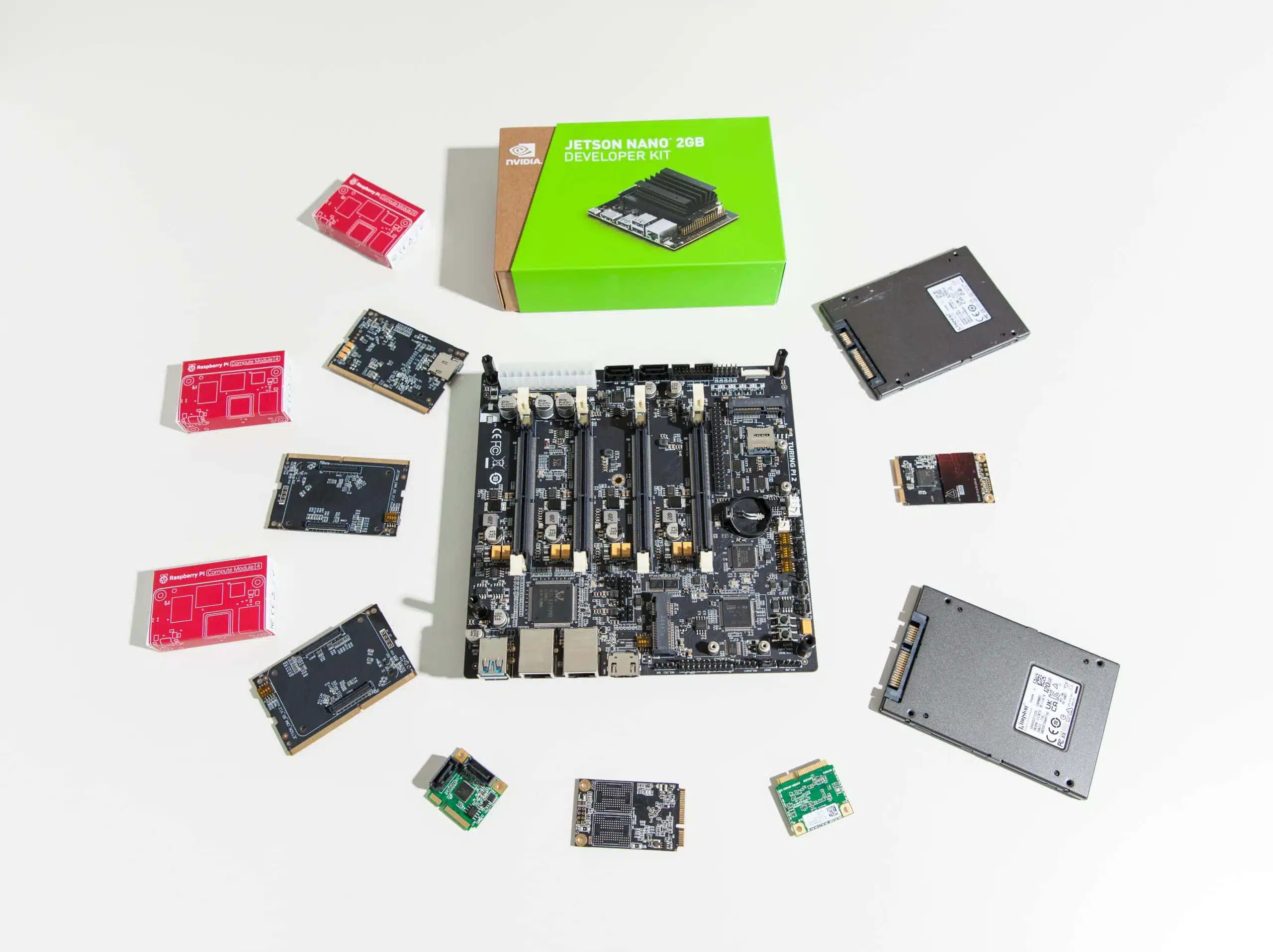Cloud services are present and future, but unfortunately, they come with privacy concerns complimentary to a price tag. However, did you know that most of the Internet services you are using every day can be hosted at your home privately?
Self-hosting? Why?
The short answer is:
- It’s free and open-source,
- You are in full control, and
- You know where your data is stored.
You can self-host thousands of web services, such as Home-assistant, media streaming, gaming servers, office packages, and many more! Imagine, you can manage smart home apps, photo galleries, working docs, and Minecraft servers on your own device and share them with your friends, family, and colleagues. You get seamless experiences similar to that of the paid services, but you keep everything you do and store entirely private.
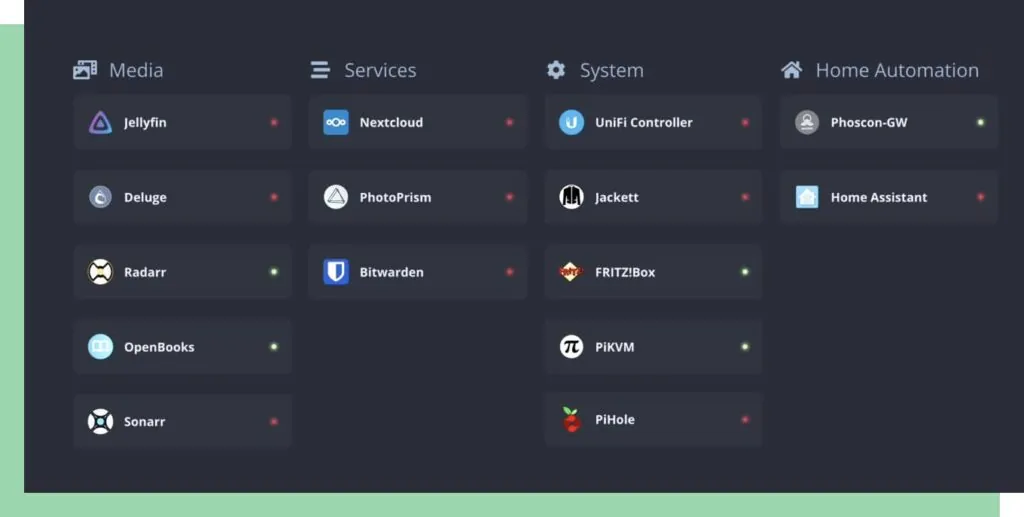
So, how to get started with self-hosted?
You could assemble a server at your home, however, server equipment is not only big and chunky but also power-hungry and noisy. Another option is to rent a cloud server. Though in both cases you would need skills and knowledge to build a cluster because most of the cloud apps are designed to run on multiple nodes, a cluster, but not a single computer. Additionally to that, you would need skills in server and network administration to set up Linux, and software such as Kubernetes and constantly manage the infrastructure running your applications. Sounds complicated? Well, there is another solution which is called Turing Pi 2.
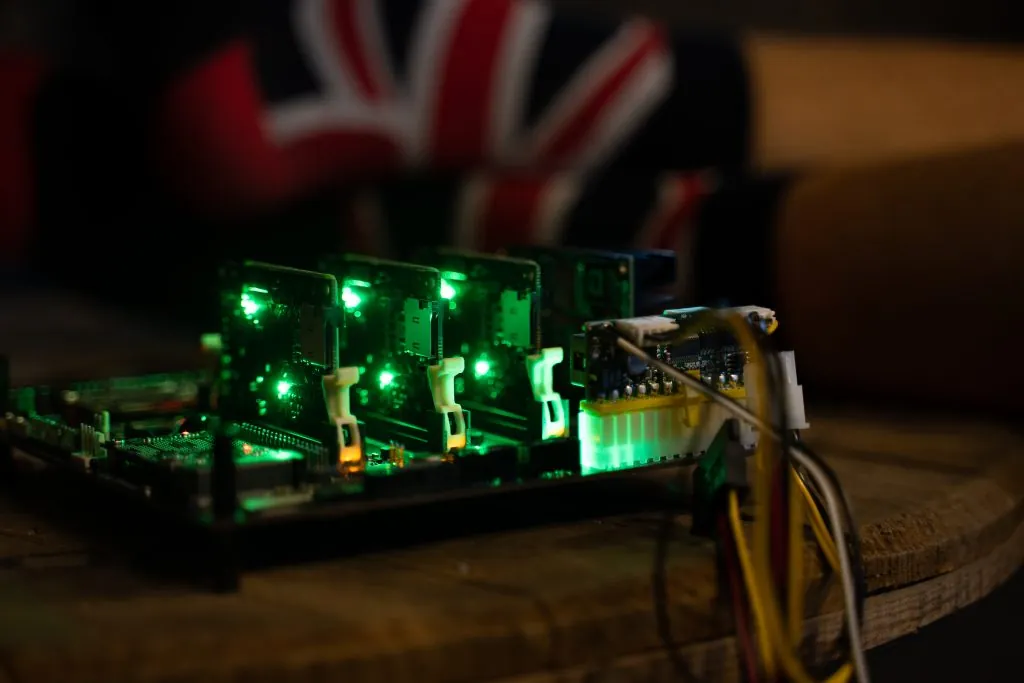
The Turing Pi 2 cluster board is designed to provide you with the creative freedom to set up your own server, homelab, workstation, edge computing node, or whatever it may be. It essentially runs up to four computers interconnected by a network, yet does it in an elegant way: no excessive cables or big boxes.
The Turing Pi 2 is equipped with a 1Gbps managed switch, 2x Ethernet ports, 2x SATA3 ports, 4x USB3 ports, DSI and HDMI port, SIM card slot, and two mini PCIe slots that allow extending functionality with a variety of mini PCI-e extension cards. In addition, thanks to its standard mini ITX form-factor, the Turing Pi 2 fits into any conventional rack-mount or computer case.
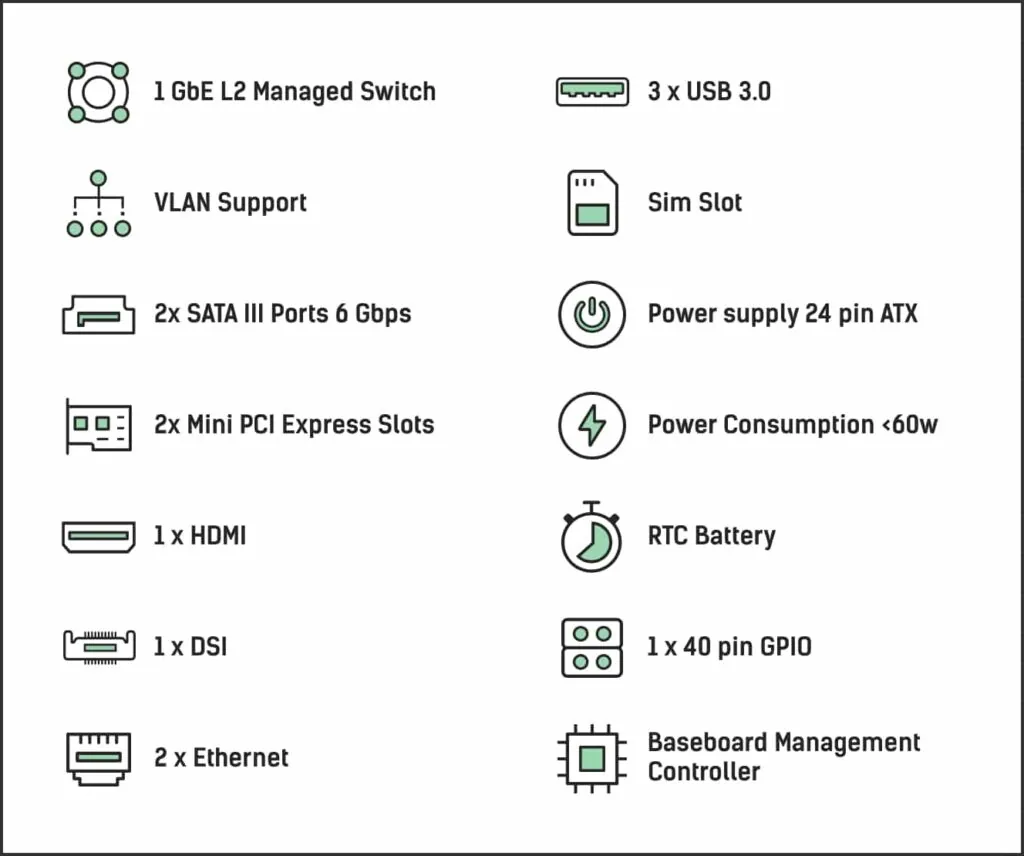
All flavors of compute modules
The Turing Pi 2 supports Raspberry Pi 4 compute modules for general compute, and Nvidia Jetson compute modules for parallel computing tasks and machine learning, as well as our own Turing RK1 compute modules.
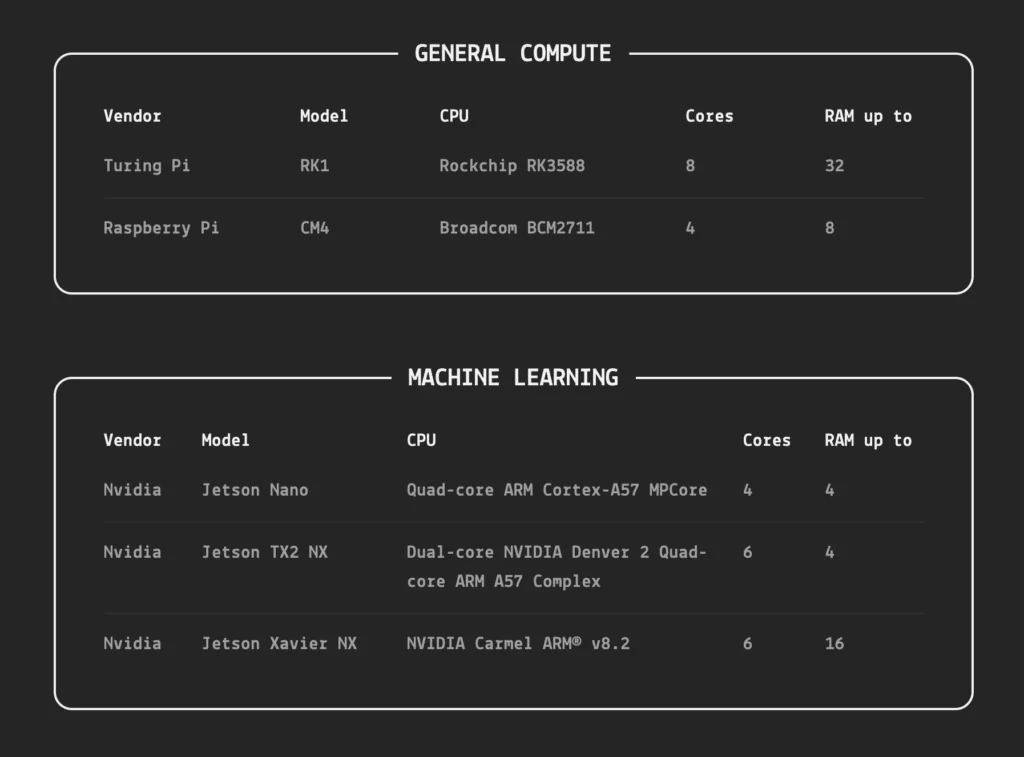
Turing RK1 compute module
The Turing RK1 compute module comes with up to 32 GB of RAM. This module enables building production-ready mid-price segment clusters with up to 128 GB of RAM and 32 CPU cores.
The module is based on the Rockchip RK3588 processor:
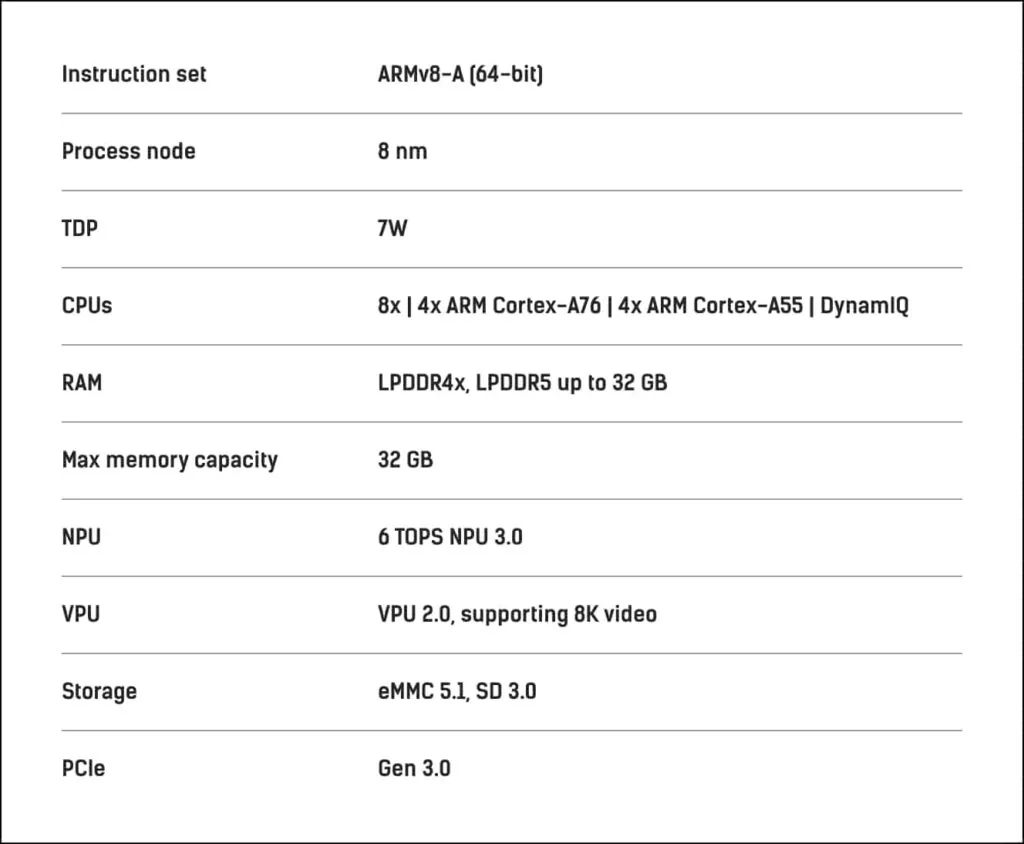
Easy to start
The icing on the cake and the cherry on top is a baseboard management controller (BMC) with open-source firmware. The Turing Pi 2 firmware offers a set of remote management functions such as serial console over LAN, remote OS image flashing, authentication, self-testing, and Over-The-Air management. It allows you to bootstrap a cluster from bare metal hardware to an all-set-up kubeconfig, resume workflows after failures and makes it easier to manage the nodes or even a whole fleet of clusters.
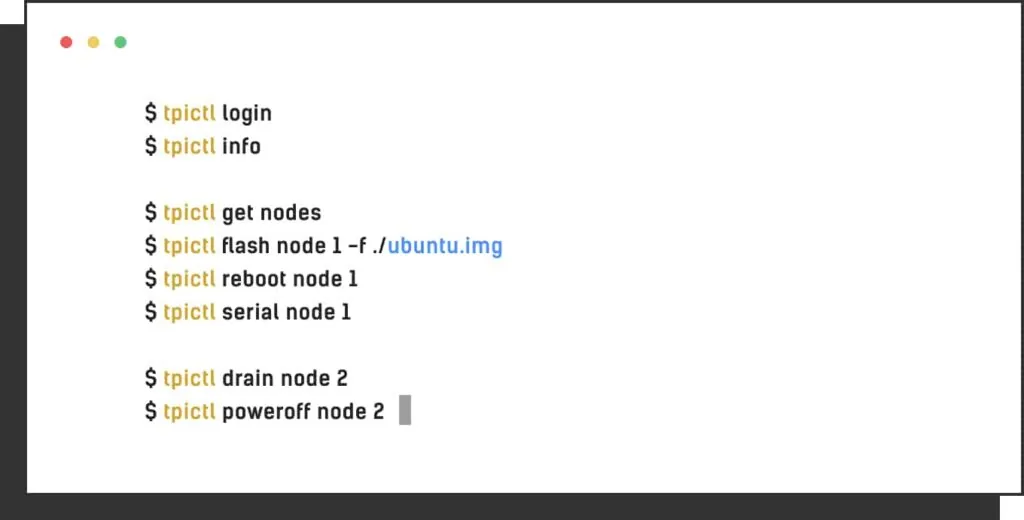
The vision
Here at Turing Machines, we aim to create a compact server and software stack for self-hosted applications: a straightforward solution in the mid-price segment with enough resources to run up to hundreds of applications, easy to set up, easy to manage, available 24/7 locally, and over the Internet. The cluster architecture makes it cloud-native compatible, increases reliability and allows for easy hardware upgrades without the need of replacing the entire server.
There is currently a lack of an easy-to-use environment to run and administer self-hosted applications. This is why we believe it is empirical to create the right hardware and software platform to fulfill the gap.
We are aiming to provide a user-friendly solution based on the Kubernetes ecosystem. To achieve these goals we are working in two directions:
- The production of Turing Pi RK1 compute modules with up to 32 GB of RAM and
- The development of a fundamental software platform optimized to work with the cluster mainboard and the compute modules.
Our objective is to deliver an all-in-one solution that has the entire hardware infrastructure together with the necessary software pre-installed, fully set up, and ready to use. Applications, which you download via the Internet, are a click away, and voila, you are instantly your own cloud provider and in control of all your data. Businesses could also benefit by processing certain tasks and data locally. This hybrid approach brings more reliability and helps to cut business expenses.
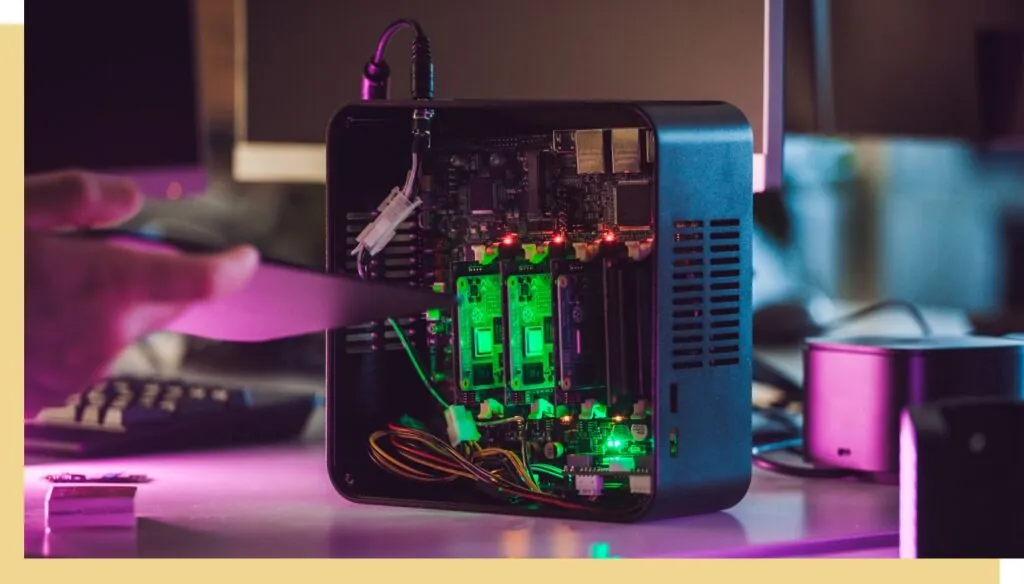
The big day is coming
We are more than excited to announce the launch of the Turing Pi 2 on Kickstarter on May 11, 2022, 9 AM PT. The board price tag starts at $199 for super early birds, plus $10 for each Raspberry Pi compute module adapter. Become the first to start utilizing the immense potential of the Turing Pi 2. Hop down a rabbit hole of the self-hosted revolution.
